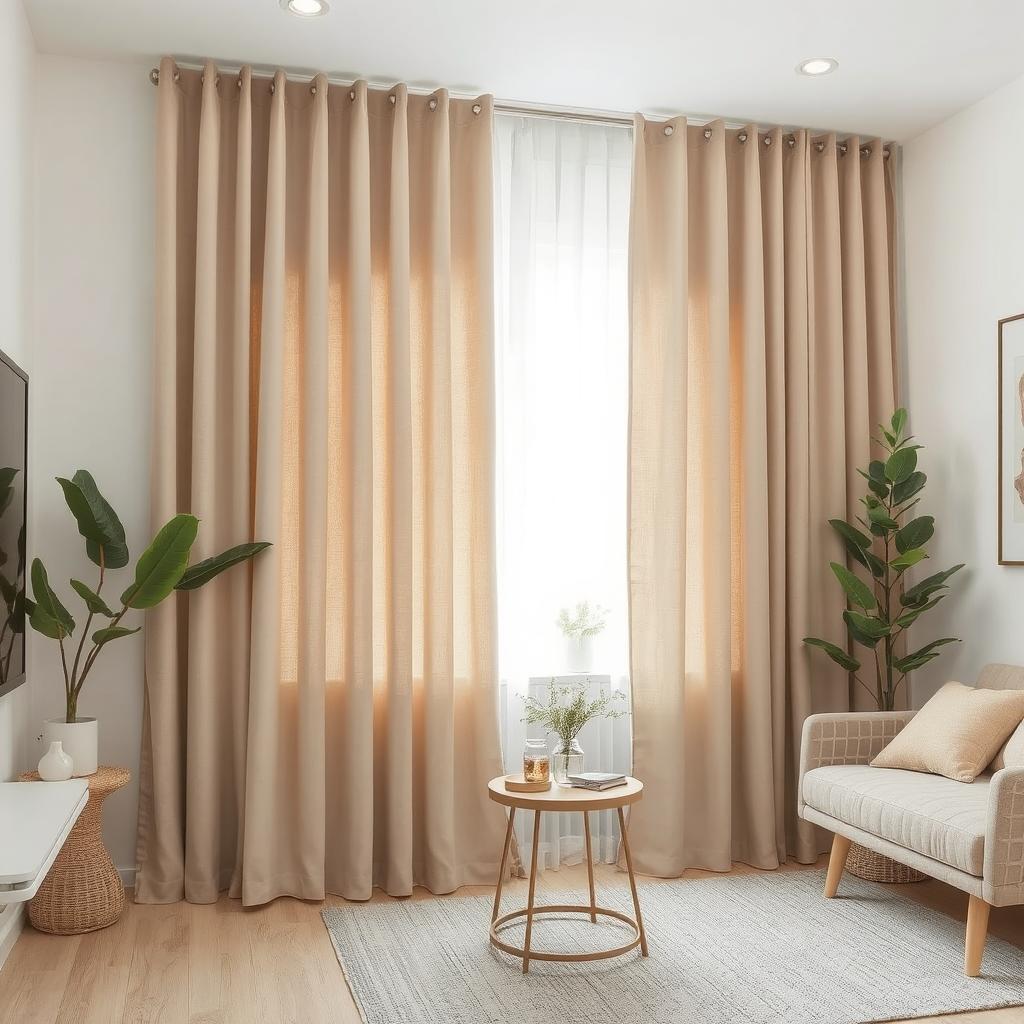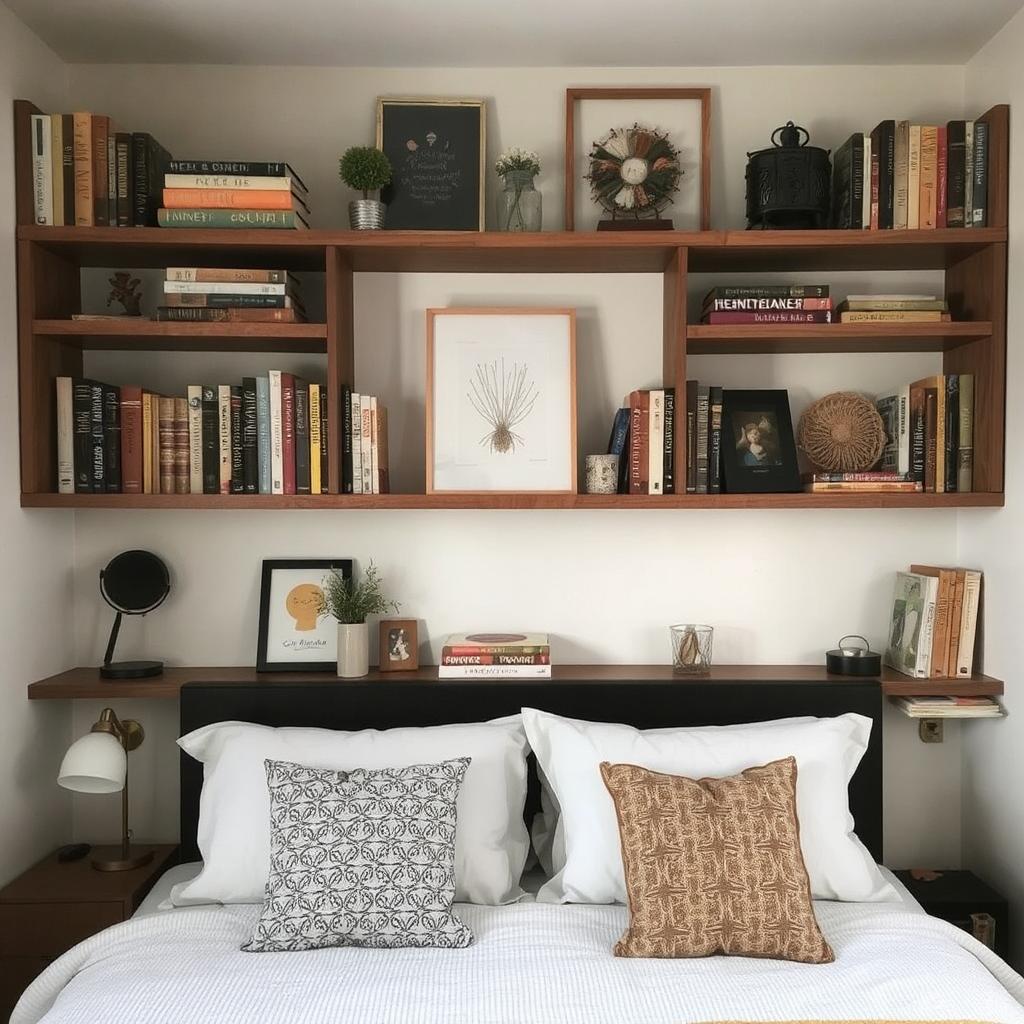Introduction
When choosing curtains for your home, one of the most important decisions is the material. Synthetic curtains are made from man-made fabrics like polyester or nylon. They are popular because they are affordable, durable, and easy to care for. While synthetic curtains may not have the same luxurious feel as natural fabrics like cotton or linen, they offer many benefits. These curtains are practical, versatile, and come in many styles, making them a great choice for various rooms in your home.
In this article, we will explore the pros and cons of synthetic curtains. We’ll take a look at the benefits of using synthetic materials, such as their durability, ease of cleaning, and cost-effectiveness. We’ll also discuss some potential drawbacks, including their environmental impact and how they compare to natural fabric curtains. Whether you’re considering synthetic curtains for your living room, bedroom, or kitchen, understanding these factors will help you make the best decision. By the end of this guide, you’ll know whether synthetic curtains are the right choice for your home.
Section 1: What Are Synthetic Curtains?
Synthetic curtains are made from man-made fibers such as polyester, nylon, and acrylic. These materials are created through chemical processes, making them more affordable and versatile than natural fabric options. Unlike cotton or linen curtains, synthetic curtains are lightweight, strong, and resistant to wrinkles, fading, and shrinking.
One of the biggest reasons people choose synthetic curtains is their affordability. Because the raw materials are cheaper and the manufacturing process is faster, synthetic curtains often come at a lower price than natural fabric curtains. They are a great option for homeowners who want to update their home décor without breaking the budget.
In addition to their low cost, synthetic curtains are available in many colors and patterns. This variety allows you to find the perfect match for your interior design style. Whether you prefer a modern, minimalist look or something more traditional, synthetic curtains can meet your needs. Moreover, synthetic fabrics can mimic the texture and appearance of natural fabrics like linen, making them a great alternative at a fraction of the price.
Section 2: Pros of Synthetic Curtains
There are several advantages to choosing synthetic curtains for your home. Let’s take a closer look at some of the key benefits.
- Durability: Synthetic curtains are known for their strength and durability. They are resistant to wear and tear, making them ideal for high-traffic areas. Unlike natural fabric curtains, which may get damaged or frayed over time, synthetic curtains can last for many years with proper care.
- Easy Maintenance: Synthetic curtains are simple to clean. They can usually be machine washed, and they dry quickly compared to natural fabrics. This is especially helpful for busy households or spaces like kitchens, where curtains may need frequent washing.
- Cost-Effective: Synthetic curtains are generally less expensive than their natural fabric counterparts. This makes them a great option if you’re on a budget or need to buy curtains for multiple rooms without spending too much.
- Variety of Styles: Synthetic fabrics come in many textures, colors, and patterns. This allows you to choose curtains that match your home décor style, from sleek modern designs to more traditional looks.
These benefits make synthetic curtains a popular choice for many homeowners looking for practical and stylish window treatments.
Section 3: Cons of Synthetic Curtains
While synthetic curtains have many advantages, there are also some drawbacks to consider before making a decision. Understanding these potential downsides will help you weigh the pros and cons effectively.
- Environmental Impact: Synthetic fabrics are made from petrochemicals, which are non-renewable resources. The production of synthetic curtains contributes to pollution and uses a significant amount of energy. Additionally, synthetic materials are not biodegradable, meaning they can take hundreds of years to decompose in landfills. If you’re environmentally conscious, this is a key consideration.
- Lack of Breathability: Unlike natural fabrics like cotton or linen, synthetic materials tend to trap heat and moisture. This can lead to a less breathable environment, especially in warmer climates. As a result, synthetic curtains may not be the best choice for areas that require good air circulation.
- Chemical Smell: New synthetic curtains may have a chemical smell due to the manufacturing process. This odor can linger for a while after installation, especially if the curtains are exposed to heat or sunlight.
- Less Luxurious Feel: Synthetic curtains often lack the soft, luxurious texture of natural fabrics. While they can mimic the look of other materials, they may not feel as premium as cotton or linen curtains.
These cons should be kept in mind when choosing synthetic curtains for your home.
Best Uses for Synthetic Curtains
Synthetic curtains are incredibly versatile and can be used in various settings within your home. Their affordability, durability, and low-maintenance nature make them ideal for different rooms and purposes. Whether you need curtains for aesthetic reasons, light control, or simply a practical solution for your windows, synthetic fabrics offer a wide range of benefits. Let’s dive deeper into some of the best uses for synthetic curtains in different areas of your home.
1. Living Room: Style and Function Combined
The living room is one of the most important spaces in your home, often serving as a gathering place for family and guests. When choosing curtains for this area, both style and function should be top priorities. Synthetic curtains fit perfectly in this setting due to their ability to offer a range of looks and practical features.
Synthetic curtains are available in numerous colors, patterns, and designs, which makes it easy to match them to your living room’s decor. Whether you prefer bold prints, elegant neutrals, or light-filtering fabrics, synthetic curtains come in many options. You can experiment with different styles, from sleek and modern to cozy and traditional, without worrying about their durability. Unlike natural fabrics, synthetic materials tend to resist fading, which is especially important in rooms like the living room where curtains are exposed to direct sunlight.
Another key benefit for living rooms is light control. Many synthetic fabrics are thick enough to block out light, ensuring that your living room remains cool and private. This can be particularly useful in spaces where you might want to prevent the harsh sun from coming in, especially in the afternoon or during the summer months. Synthetic curtains can also help improve energy efficiency by keeping heat in during the winter and blocking out the heat in summer.
For easy maintenance, synthetic curtains are perfect. They require little upkeep compared to natural fabrics, which may need dry cleaning or special care. Most synthetic curtains can be washed at home in a regular washing machine, making them ideal for busy households.
2. Kitchen: Practical and Easy to Clean
The kitchen is one of the messiest rooms in the house, so it’s important to choose window treatments that can withstand spills, stains, and frequent cleaning. Synthetic curtains are a great option for this space because they are low-maintenance and durable.
Since synthetic materials like polyester are often resistant to stains, they are easy to wipe clean, making them a practical choice for the kitchen. Spills from cooking, food stains, and grease marks are common in this room, but with synthetic curtains, you won’t have to worry about them getting damaged or stained easily. Most synthetic fabrics are also machine washable, so you can simply toss them in the laundry when they need refreshing.
Moreover, synthetic curtains are generally resistant to fading, meaning they will retain their color even with exposure to sunlight. In the kitchen, where sunlight is often streaming through the windows, this can be a huge benefit. You can enjoy vibrant, colorful curtains that won’t lose their look over time.
Another advantage is that synthetic curtains are often wrinkle-resistant. You won’t have to spend time ironing or steaming them, making them a great choice for busy homeowners who don’t want to spend too much time on upkeep.
3. Bedrooms: Privacy and Comfort
For the bedroom, synthetic curtains can be an excellent choice, especially when it comes to privacy, light-blocking, and ease of care. If you live in a densely populated area or simply want to enjoy some privacy, synthetic curtains can help achieve this. Many synthetic fabrics are thick enough to block out light and offer protection from prying eyes, creating a cozy and private environment for sleep.
In addition to privacy, synthetic curtains in the bedroom can help create the perfect atmosphere for a restful night. For instance, blackout synthetic curtains are particularly popular in bedrooms because they block most, if not all, of the natural light. This is especially beneficial for people who work night shifts or live in areas with long summer days. The darkness provided by synthetic blackout curtains can also help improve your sleep quality by preventing early morning sunlight from disturbing your rest.
Synthetic curtains are also great for temperature control in the bedroom. They can help regulate room temperature by keeping the cold air out during winter and preventing heat from entering during summer. This makes synthetic curtains a practical choice for bedrooms in areas with extreme weather conditions.
4. Outdoor Spaces: Weather-Resistant Curtains
Synthetic curtains are also a popular choice for outdoor spaces, such as patios, balconies, or covered verandas. Outdoor curtains are exposed to various weather conditions, so they need to be both durable and weather-resistant. Certain synthetic fabrics, like polyester, are designed to withstand outdoor elements. These materials are typically resistant to mildew, mold, and fading caused by exposure to the sun, making them ideal for outdoor use.
In addition to their durability, synthetic curtains for outdoor spaces can provide much-needed shade and privacy. Whether you’re hosting a gathering on the patio or simply want to enjoy some peace and quiet in your garden, synthetic outdoor curtains can help block out harsh sunlight and shield your space from prying eyes. Many outdoor synthetic curtains are also treated to be water-resistant, so you don’t need to worry about them getting soaked during a light rain shower.
Outdoor spaces can be vulnerable to wear and tear, but synthetic curtains are designed to handle these conditions. They are easy to clean, dry quickly, and can be packed away when the weather turns rough. This makes synthetic curtains a perfect solution for creating comfortable, private, and stylish outdoor retreats.
Are Synthetic Curtains Right for You?
Now that we’ve covered the pros and cons of synthetic curtains, you may be wondering whether they are the right choice for your home. The answer depends on your specific needs and priorities.
If you’re on a budget, synthetic curtains offer an affordable solution without compromising on style. They come in a wide variety of designs, colors, and textures, making it easy to find the perfect match for your home décor. If you need curtains that are low-maintenance, synthetic fabrics are easy to clean and quick to dry, which is perfect for busy households.
However, if environmental impact is a concern for you, natural fabrics may be a better option. Synthetic curtains are made from non-renewable resources and are not biodegradable. For those who value sustainability, this might outweigh the benefits of their affordability and durability.
Additionally, if you’re looking for luxurious texture or breathability, synthetic curtains might not meet your expectations. Natural fabrics like linen or cotton are often more breathable and have a softer, more luxurious feel.
Ultimately, synthetic curtains are a great choice if you need a practical, budget-friendly, and low-maintenance option for your home. Consider your priorities to determine if they align with the benefits of synthetic materials.
Frequently Asked Questions
1. What are synthetic curtains made of?
Synthetic curtains are made from man-made fibers such as polyester, nylon, or acrylic. These materials are durable, resistant to fading, and require less maintenance compared to natural fabrics, making them ideal for various home environments.
2. Are synthetic curtains durable?
Yes, synthetic curtains are highly durable. They are resistant to wear, fading, and wrinkles. Synthetic fabrics can withstand daily use, making them a great choice for busy households, especially in high-traffic areas like living rooms or kitchens.
3. Do synthetic curtains block light effectively?
Many synthetic curtains, especially those made from heavier materials like polyester or with blackout linings, block light effectively. They can help maintain privacy and create a dark, comfortable environment, perfect for bedrooms or media rooms.
4. Are synthetic curtains machine washable?
Yes, most synthetic curtains are machine washable, making them easy to care for. Check the care label for specific instructions, but generally, they require less maintenance than natural fabrics and are resistant to shrinking or damage from washing.
5. Can synthetic curtains fade in sunlight?
Synthetic curtains are generally resistant to fading compared to natural fabrics. While prolonged exposure to sunlight can eventually cause some fading, synthetic materials like polyester are designed to retain their color for longer periods.
6. Are synthetic curtains eco-friendly?
While synthetic curtains are not as eco-friendly as natural fabrics, some are made with recycled materials. They are durable and require fewer resources to maintain, but they do not biodegrade as easily as natural fiber curtains.
7. Do synthetic curtains attract dust and allergens?
Synthetic curtains are less likely to attract dust and allergens compared to fabric curtains. However, like all window treatments, they can still accumulate dust over time, so regular cleaning is recommended to maintain air quality.
8. Can synthetic curtains be used outdoors?
Yes, some synthetic curtains are designed for outdoor use. Fabrics like polyester are weather-resistant, durable, and can withstand sun, rain, and mildew, making them ideal for patios, balconies, or covered outdoor spaces.
9. Are synthetic curtains suitable for bedrooms?
Synthetic curtains are great for bedrooms due to their light-blocking properties. They can offer privacy, reduce noise, and help maintain a comfortable room temperature, making them perfect for creating a peaceful, restful environment for sleep.
10. How do synthetic curtains compare to cotton curtains?
Synthetic curtains are more durable, wrinkle-resistant, and easier to maintain than cotton curtains. However, cotton provides a more natural, breathable feel, while synthetic fabrics may offer better resistance to fading and stains over time.
Conclusion
In conclusion, synthetic curtains offer a blend of practicality, durability, and style for any home. They are easy to maintain, cost-effective, and available in a variety of colors and designs to suit different spaces. While they may not have the natural feel of fabrics like cotton, their resistance to fading, wrinkling, and wear make them a reliable choice for many households. Whether you’re looking to enhance the privacy, light control, or aesthetic of your living room, bedroom, or kitchen, synthetic curtains provide an efficient solution. Ultimately, the choice between synthetic and natural curtains depends on your specific needs, lifestyle, and personal preferences.



